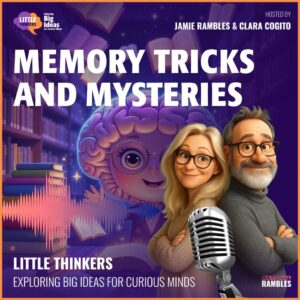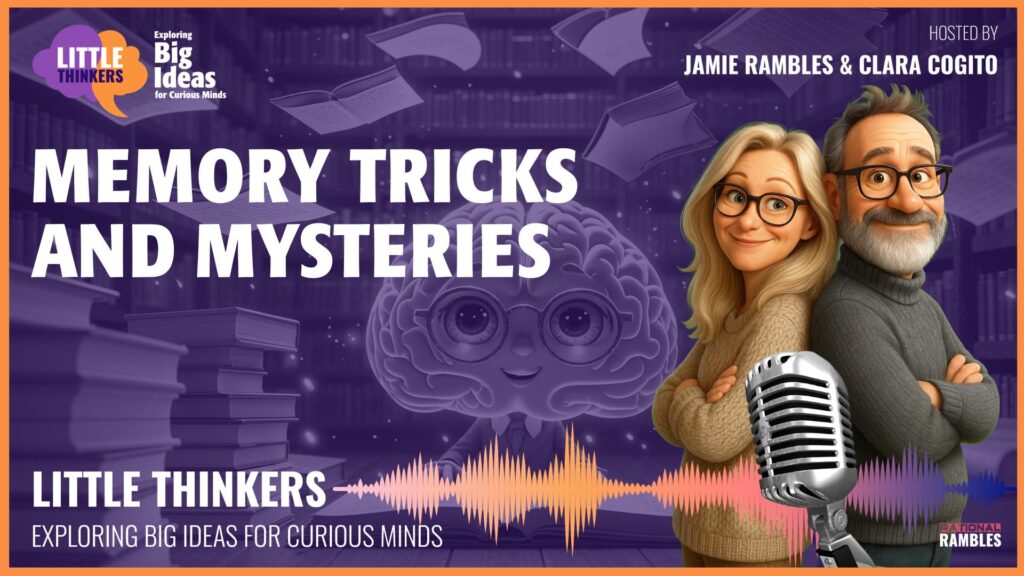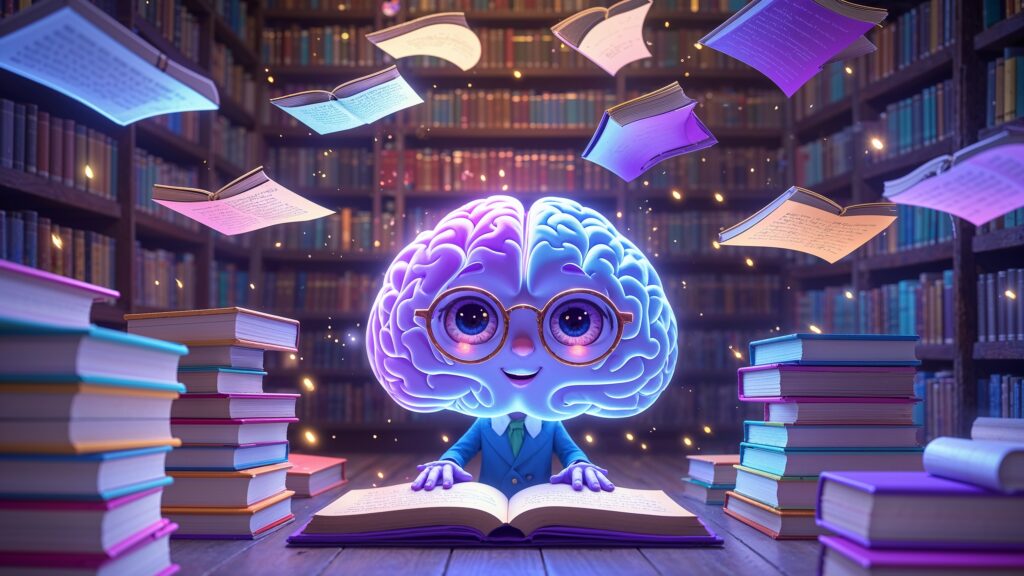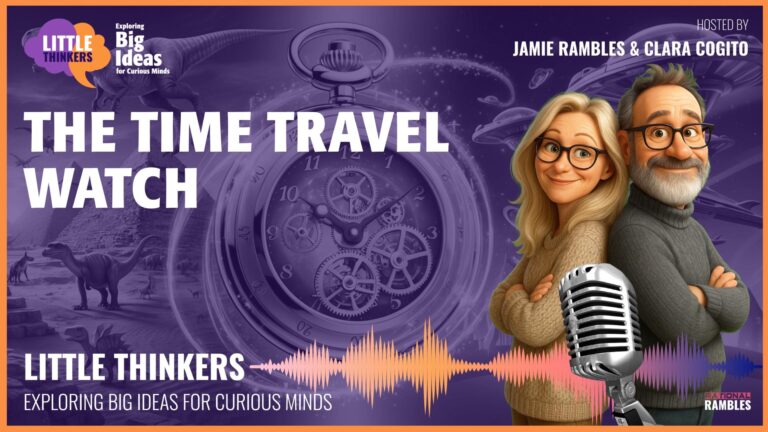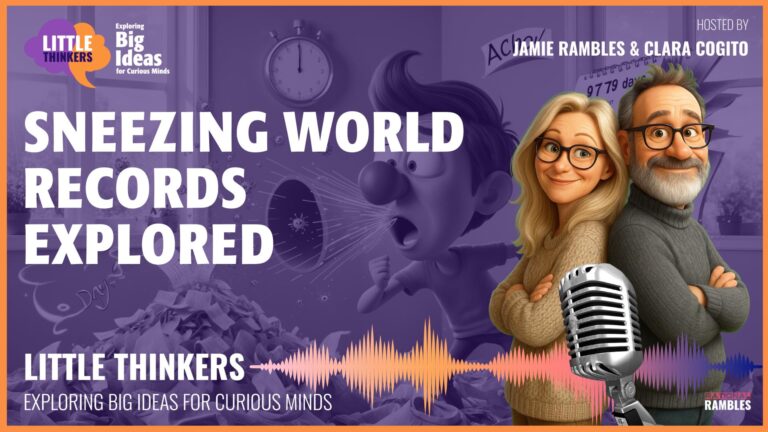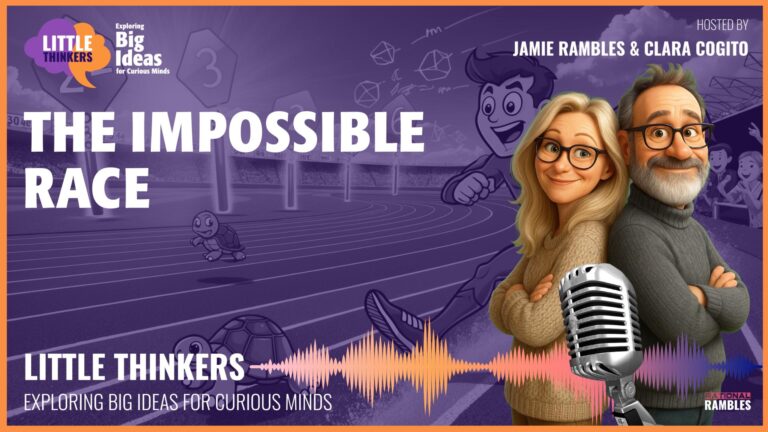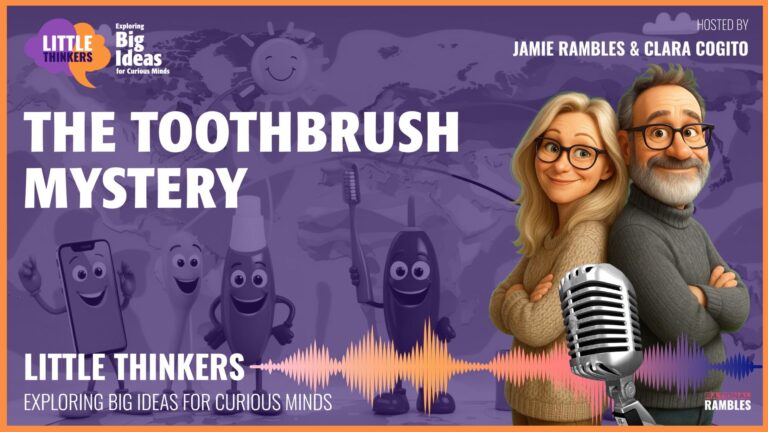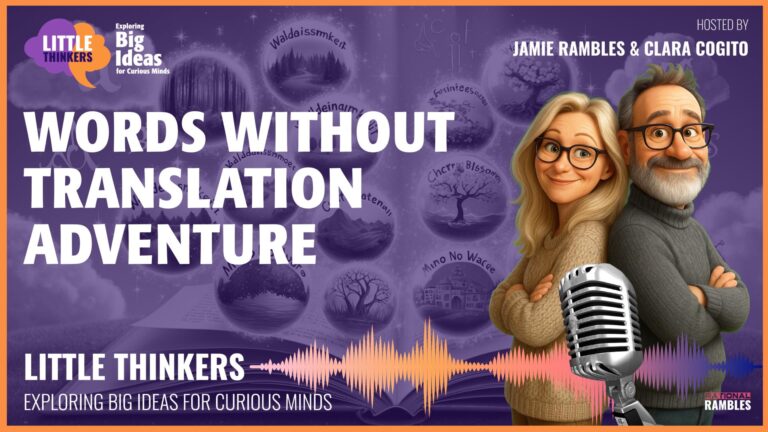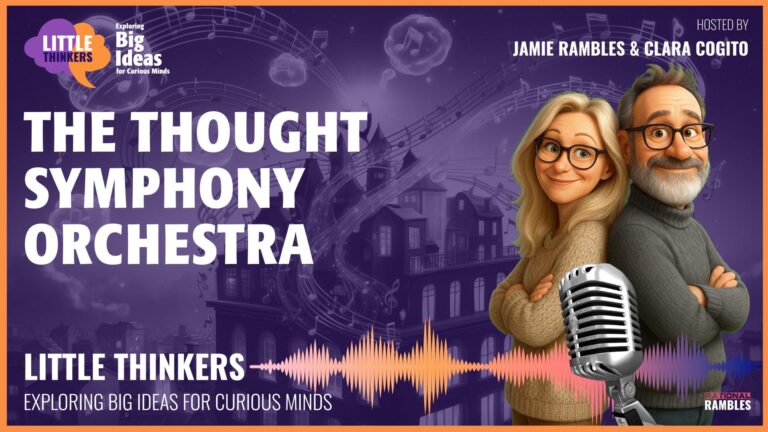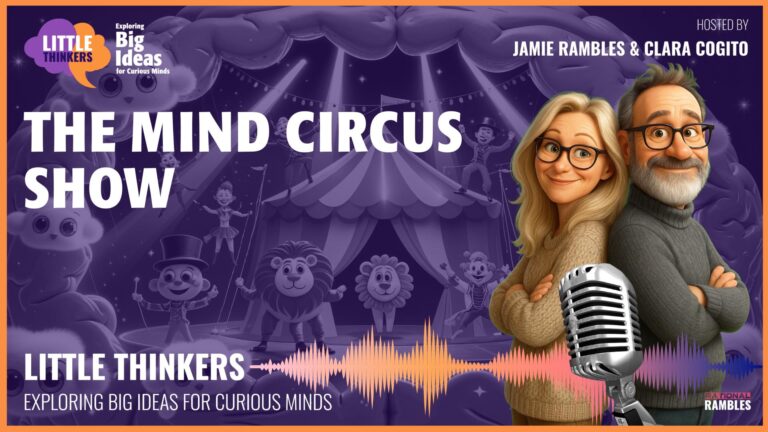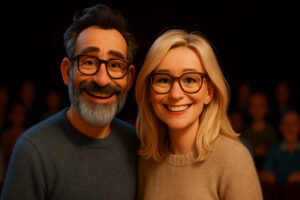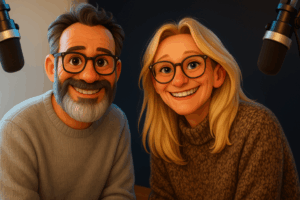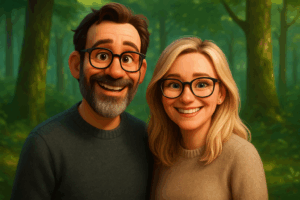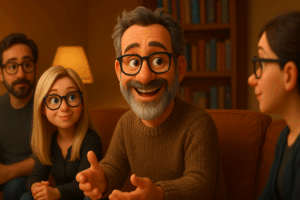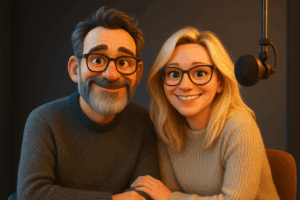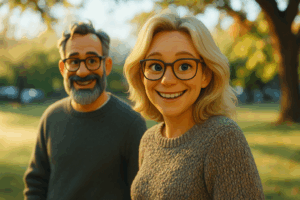Memory Magic: When Your Brain Plays Tricks on You!
The Mystery of Memories
Hey there! Have you ever had a super clear memory of something happening – like riding a purple elephant at the zoo – only to find out it never actually happened? Whaaaat? That sounds bonkers, right?
Your brain is an amazing thing! It helps you remember your birthday parties, your favorite vacation, and that funny thing your pet did. But sometimes, your brain can be a bit of a trickster and create memories of things that never actually happened! Scientists call these “false memories” – they’re like pretend events that feel totally real in your mind!
Your Brain: The Creative Storyteller
Imagine you have a toy box in your mind. This special toy box is where all your memories live. Sometimes, your brain accidentally puts pretend toys in there with the real ones! Later, when you look inside your memory toy box, you can’t tell which toys are real and which ones are make-believe.
Your brain isn’t trying to trick you on purpose. It’s just super creative – like the world’s best storyteller! Sometimes it fills in missing pieces of a memory the way you might connect dots in a puzzle. But instead of following the numbers, your brain sometimes makes up its own dots!
The Bugs Bunny Experiment
Here’s something wild: Scientists once convinced grown-ups they met Bugs Bunny at Disneyland when they were children! The funny thing is, Bugs Bunny doesn’t even belong to Disney – he’s a Warner Bros. character! That would be like remembering you met SpongeBob at a dinosaur museum. It just doesn’t match up!
Yet people “remembered” shaking his hand and taking pictures with him. Their brains had taken pieces of real memories – like maybe visiting Disneyland and watching Bugs Bunny cartoons – and smooshed them together into one fake memory that felt totally real!
Why Do We Get False Memories?
Our brains are always trying to make sense of the world. When there are gaps in our memories (like missing puzzle pieces), our helpful brains try to fill them in to complete the picture. Here are some reasons we get false memories:
- Imagination gets mixed with reality – When you imagine something very clearly, your brain might later think it really happened
- Stories from others – If someone tells you a detailed story about something you did when you were younger, you might start to “remember” it
- Similar memories getting combined – Like mixing up which birthday party had the chocolate cake and which one had the water balloon fight
- Seeing photos or videos – Sometimes you might think you remember an event, but you’re actually remembering a photo you saw of it
Try This Memory Experiment!
Want to see how memories can be different for different people? Try this fun experiment: Ask your family about a funny memory from when you were smaller. Then see if everyone remembers it the same way! You might be surprised to find that mom remembers the dog was brown, but dad thinks it was black, and you remember it being spotted!
Nobody is wrong – they just have different pieces of the memory puzzle!
The Telephone Game in Your Brain
Have you ever played the telephone game? It’s where you whisper a message to someone, who whispers it to someone else, and by the end, the message has completely changed!
Scientists discovered something amazing: every time you remember something, you’re not actually seeing the original memory – you’re remembering the LAST time you remembered it! KAPOW! Mind blown!
It’s like playing telephone with yourself – the memory might change a tiny bit each time. That’s why very old memories from when you were really little might change over time – like a photocopy of a photocopy gets a little fuzzier each time!
When Memory Mistakes Matter
Usually, having some mixed-up memories isn’t a big deal. Who cares if you remember your birthday cake was chocolate when it was really vanilla? But sometimes, memory mistakes can cause problems.
Imagine if someone witnessed a crime and had to tell the police what they saw. If their memory plays tricks on them, they might remember things wrong – like the color of someone’s shirt or what they said! That’s why detectives look for other evidence too, like fingerprints or videos, and don’t just rely on what people remember.
Memory Superheroes and Their Weaknesses
Think of your memory like a superhero. It’s amazing and powerful, but it has a few weaknesses too!
- Super Strength: Your memory can store billions of pieces of information
- Amazing Speed: You can recall some memories in just a split second
- Incredible Detail: You can remember smells, sounds, feelings, and images
- Weakness: Sometimes mixes fact with fiction
- Weakness: Can be influenced by suggestions from others
The Library of Your Memories
Close your eyes for a moment and imagine walking into a huge library. But this isn’t just any library – it’s the Library of Your Memories!
There are shelves and shelves of books, each one containing a different memory! Some books have bright, clear pictures, while others might be a bit fuzzy or have pages that change. As you walk through this special library, you notice some books have been written partly by you and partly by your imagination.
But ALL the books help tell the story of who you are! Even if some details aren’t perfectly correct, they’re still part of your special story.
Who Are You If Your Memories Aren’t Perfect?
Here’s a big question that might make your brain tingle: if our memories help make us who we are, and some memories might be wrong, then… who are we really?
That’s one of the biggest questions in all of philosophy (that’s a fancy word for “thinking about big ideas”)! If you remember being brave when you were little, but that memory is made up, are you still a brave person?
Most people think you’re still you, even with some memories that might not be perfect. It’s like a storybook that has a few pages mixed up – it’s still the same wonderful story!
And maybe what matters most is not if every memory is 100% correct, but how we feel about our memories and what we learn from them. Even if some memories aren’t perfectly accurate, the feelings they give us can still be real and important!
How to Spot False Memories
Wondering if a memory is real or made-up? Here are some detective tips:
- Check with others – Ask family members if they remember the same event
- Look for evidence – Are there photos or videos of the event?
- Think about how clear it is – Sometimes (but not always) false memories can feel a bit “fuzzy”
- Consider if it makes sense – Like the Bugs Bunny at Disney example, does the memory logically fit with other facts?
Remember though, just because others don’t remember something doesn’t automatically mean it didn’t happen! They might have forgotten or not noticed what you did.
Memory-Keeping Ideas
Want to help keep your memories more accurate? Try these fun ideas:
- Keep a journal where you write down special events
- Take photos of important moments
- Talk about memories with family members
- Make a memory box with special items that remind you of events
Your Amazing Brain
Even though we’ve learned that memories aren’t always perfect, don’t forget that your brain is still INCREDIBLE! It’s part photographer, part filmmaker, and part creative storyteller all rolled into one!
Your brain helps you learn new things, solve problems, dream up amazing ideas, and yes – remember many things correctly too! The memories you have – even the imperfect ones – help make you the unique, wonderful person you are.
So next time you’re absolutely certain you remember something, but someone else remembers it differently, you can smile knowingly. You now understand one of the brain’s most fascinating secrets – that sometimes our memories play tricks on us, and that’s perfectly normal!
Wonder Questions
Here are some fun questions to think about:
- If you could choose between having perfect memory but no imagination, or an imperfect memory with amazing imagination, which would you pick?
- Do you think animals have false memories too?
- What’s your earliest memory? How do you know it’s real?
- If two people remember the same event differently, does that mean one of them is wrong?
Remember, your memories help create your unique story – and it’s a wonderful story, even with a few made-up parts!


